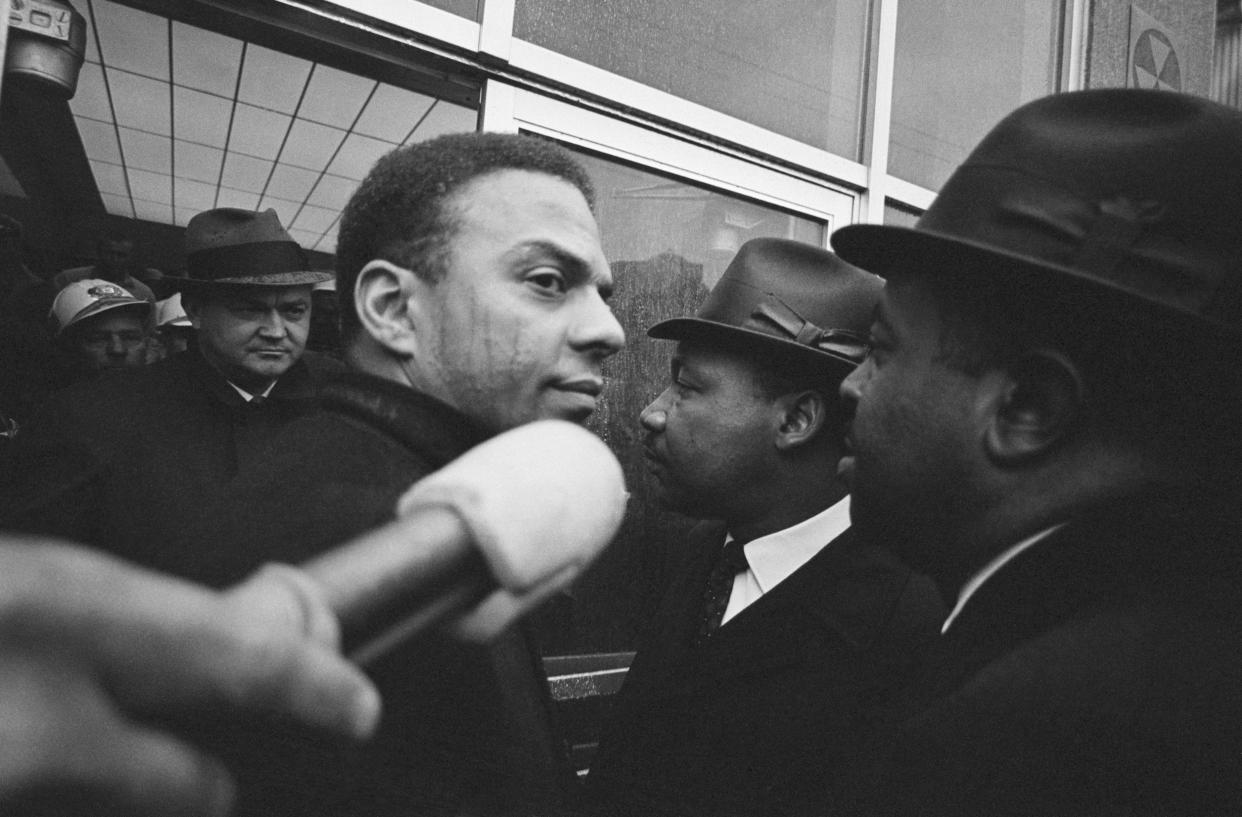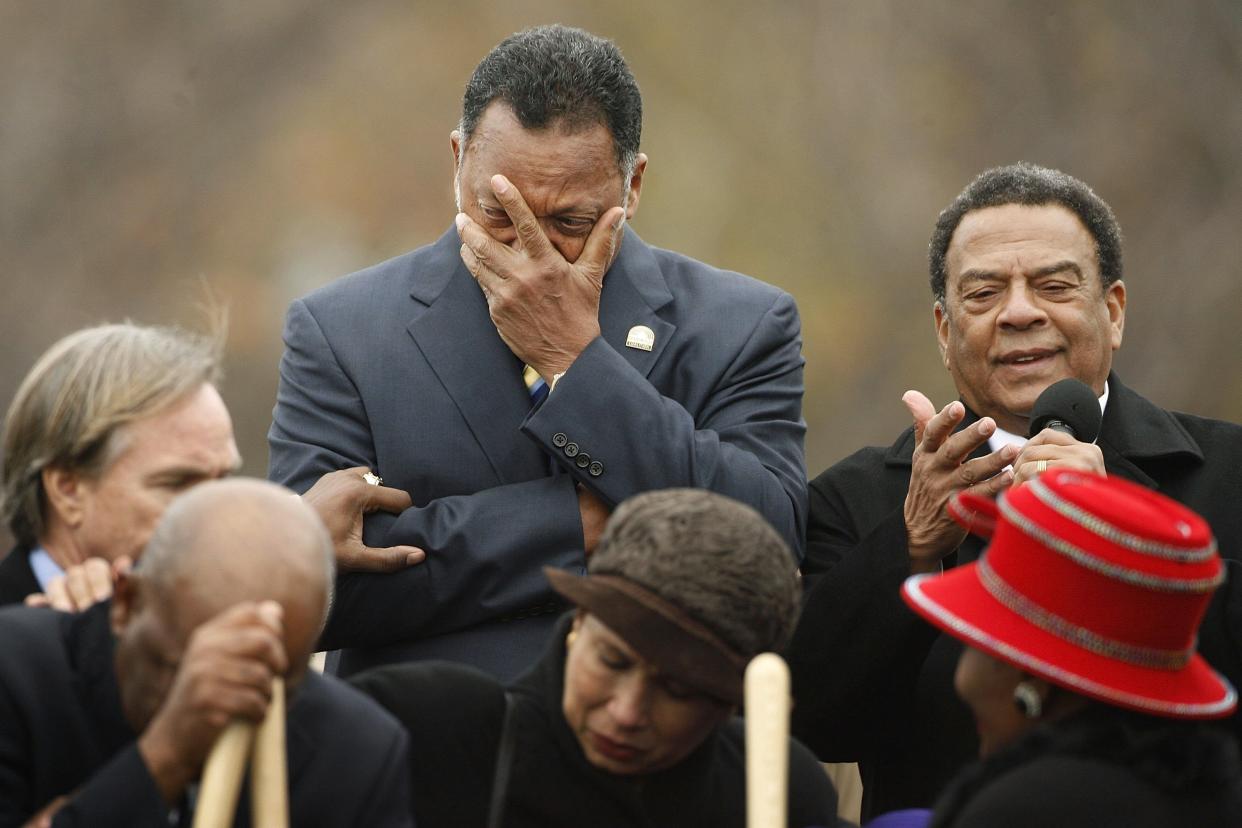Former ambassador Andrew Young on his time with MLK: 'He had no fear of death'
I recently interviewed Andrew Young, former U.S. Ambassador to the United Nations, at his home in Atlanta.
Among other items, I wanted to speak with Young about public and private partnerships and building coalitions with Democrats and Republicans as well as whites and Blacks, which he excelled at when he was the mayor of Atlanta (and as a Congressman).
However, while I had time with Young — who at 90 years old is one of the last surviving lions of the civil rights movement — I had to ask him about his time with Martin Luther King, and tragically, what happened the evening of April 4, 1968 in Memphis when King was killed. What Young told me was whimsical, horrific and inspiring.
Serwer: What was it like working with Dr. King?
Young: Well, you have to remember when I met him, he was 26. I was 23. [That would have been 1955.] He was just a really easygoing [guy], humble, and a lot of fun. Cracked a lot of jokes, always picking on people in a very loving, friendly way. He had a way of teasing you by reminding you of your faults and your weaknesses. He was also a comedian. He loved to tell stories, and mostly preacher stories, making fun of preachers and people in his own profession. And when he grew up in Atlanta, on Auburn Avenue, it literally had everything. It had all of the churches, all of the prostitution, all of the gambling, and the YMCA. And so he was really comfortable with all kinds of people. And he grew up spending a lot of time in the YMCA. Nobody ever thought of him as a good athlete. But even though he was just 5 or 7 [years old], he was a good basketball player, because he was very quick and he could shoot with either hand. The YMCA in those days had pool tables and ping pong tables so he could shoot pool and he could play table tennis. He was just an all around good guy, and he got along with everybody.

Serwer: What happened that day in Memphis when he was killed? You were there.
Young: Well, I was in court. [I was] trying to get permission to march with the sanitation workers, and the court pretty much was deciding in our favor. And I came back to his room, which was downstairs in the Lorraine Motel. And there was his brother and all of his friends. And somebody had brought in a whole platter of catfish, and they were having a good time. I mean, I hadn't seen him laugh and joke like that. When I came in he started picking on me. I said, ‘Well, wait a minute. I'm just trying to keep you out of jail. Let you march when you want to march.’ And he thought I was standing up to him. And he says, ‘Oh, you smarty…’ And he picked up the pillow on the bed and he threw it at me well. I never saw him that kind of playful. So I threw it back at him. And everybody picked up pillows. And they started beating me down between these two double beds. And it was like 12-year-olds. I had never seen him so happy because he was with his closest friends for most of his life. I had not seen him that relaxed and joyful. And just in the middle of this, somebody knocked on the door and said, ‘You all are supposed to be at my wife's house for dinner at six.’
And he went up to his room to put on a shirt and tie. He went upstairs and I was down in the parking lot. Still clowning and shadow-boxing with a guy. And a shot rang out. And the atmosphere was such that I thought he was kidding. I thought he was joking because I thought he played like he was staggering back in the room. When I ran up the steps I saw he was laying in a pool of blood. The bullet had hit the tip of his chin and severed his spine. I doubt that he heard the shot because the bullet travels faster than sound. And I even doubt that he felt anything because that shot severed his spinal cord. And it took a while for his heart to stop beating.

He was always joking about death. And he said death is the ultimate democracy. ‘I don't care what color you are, how rich you are, boy, you're, you're gonna die.’ And one of his favorite pastimes was deciding that you were gonna die, and he said that now you will be a challenge. ‘How can I preach your sorry ass into heaven?’ And he'd make you laugh at your death. Because then he would start making your case before God. That was the way he made us comfortable with death. He talked about death all the time.
My grandmother used to talk about death. In the Black community death is not something new. She felt that she was entitled to her heavenly reward. And Martin kind of felt that way too. He had no fear of death. And he made us comfortable with the possibility of our own death by making fun of us, as though he will preach at our funeral.
That's what I thought about when I saw Martin Luther King there. Gone to glory. And what I said, I said out loud to him, ‘you can't go to heaven and leave us in hell. We can't make it without you. You can't go yet, stay.’ But what I didn't understand then that I do now has been over 50 years. And Martin Luther King is more powerful spiritually now than he was when he was physically alive. That he's quoted more. The other night on MSNBC, somebody said, Dr. King used to say the moral arc of the universe is long and it bends toward justice. That's a quote from 60 or 70 years ago, but it's still a relevant interpretation of our struggles on this earth.
Follow Andy Serwer, editor-in-chief of Yahoo Finance, on Twitter: @serwer
Read the latest financial and business news from Yahoo Finance
Download the Yahoo Finance app for Apple or Android
Follow Yahoo Finance on Twitter, Facebook, Instagram, Flipboard, LinkedIn, and YouTube
